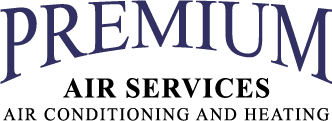
We spend lots of time inside. In reality, the Environmental Protection Agency (EPA) has estimated being indoors accounts for 90% of our days. However, the EPA also has found your indoor air can be three to five times more polluted than outdoors.
That’s because our houses are firmly sealed to enhance energy efficiency. While this is great for your energy costs, it’s not so great if you’re among the 40% of the population with respiratory allergies.
When outside ventilation is insufficient, pollutants like dust and volatile organic compounds (VOCs) may get trapped. Consequently, these pollutants could irritate your allergies.
You can improve your indoor air quality with fresh air and regular housework and vacuuming. But if you’re still having issues with symptoms while you’re at your house, an air purifier could be able to help.
While it can’t remove pollutants that have landed on your furniture or carpeting, it may help freshen the air traveling across your home.
And air purification has also been scientifically verified to help lower some allergic symptoms, according to the American College of Allergy, Asthma and Immunology. It can also be appropriate if you or a loved one has lung issues, like emphysema or COPD.
There are two kinds, a portable air purifier or a whole-home air purifier. We’ll examine the advantages so you can figure out what’s correct for your home.
Whole-House Air Purifier vs. Portable Air Purifiers
A portable air purifier is for one room. A whole-house air purifier works with your heating and cooling unit to treat your entire home. Some types can clean on their own when your heating and cooling system isn’t on.
What’s the Best Air Purifier for Allergies?
Look for a model with a High Efficiency Particulate Air (HEPA) filter. HEPA filters are used in hospitals and offer the best filtration you can get, as they trap 99.97% of particles in the air.
HEPA filters are even more useful when combined with an ultraviolet (UV) germicidal light. This dynamic mixture can destroy dust, dander, pollen and mold, all of which are general allergens. For the ultimate in air purification, think over a system that also has a carbon-based filter to decrease household smells.
Avoid buying an air purifier that makes ozone, which is the main component in smog. The EPA cautions ozone might worsen respiratory issues, even when discharged at small settings.
The Allergy and Asthma Foundation of America has compiled a listing of questions to think over when purchasing an air purifier.
- What can this purifier remove from the air? What doesn’t it remove?
- What’s its clean air delivery rate? (A bigger number means air will be freshened more rapidly.)
- How regularly does the filter or UV bulb need to be changed]? Can I do that without help?
- How much do new filters or bulbs cost?
How to Decrease Seasonal Allergy Symptoms
Want to have the {top|most excellent|best] outcome from your new air purification system? The Mayo Clinic recommends taking other steps to decrease your exposure to problems that can cause seasonal allergies.
- Stay in your home and keep windows and doors sealed when pollen counts are elevated.
- Have someone else mow the lawn or pull weeds, since this work can aggravate symptoms. If you must do this work yourself, you may want to consider wearing a pollen mask. You should also shower right away and put on clean clothes once you’re done.
- Avoid drying laundry outside.
- Run your air conditioner while indoors or while in the car. Consider using a high efficiency air filter in your house’s heating and cooling equipment.
- Even out your home’s humidity saturation with a whole-house dehumidifier.
- Hardwood, tile or linoleum are the ideal flooring materials for decreasing indoor allergens. If your home has carpet, install a HEPA filter on your vacuum cleaner.
Let Our Specialists Manage Your Indoor Air Quality Needs
Prepared to take the next step with installing a whole-house air purifier? Give our experts a call at 713-364-1078 or contact us online to get an appointment. We’ll help you choose the best unit for your house and budget.
